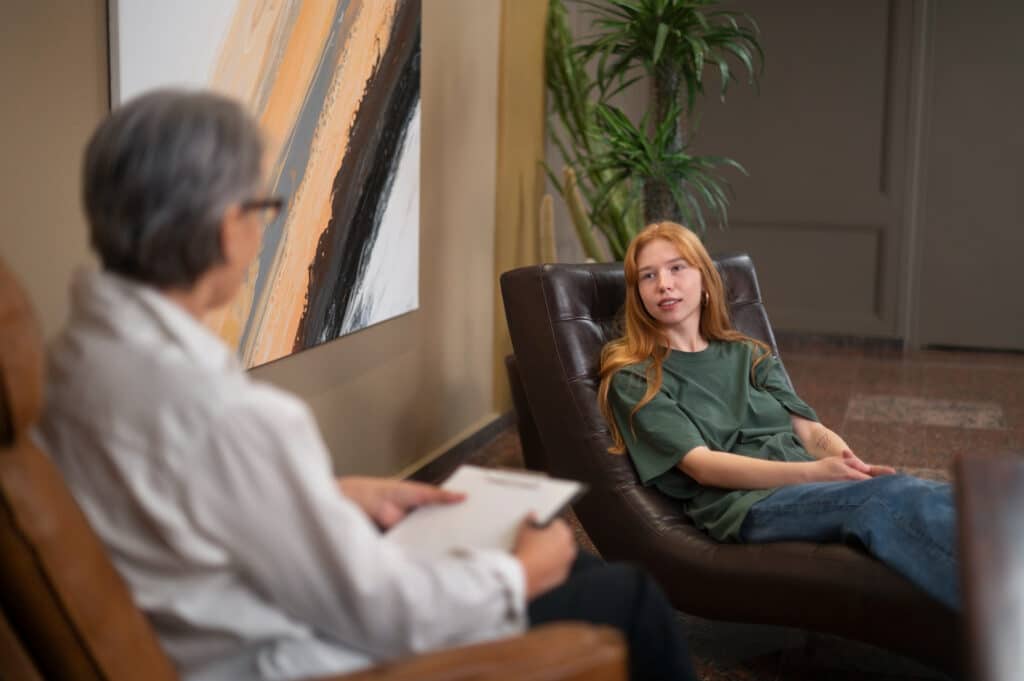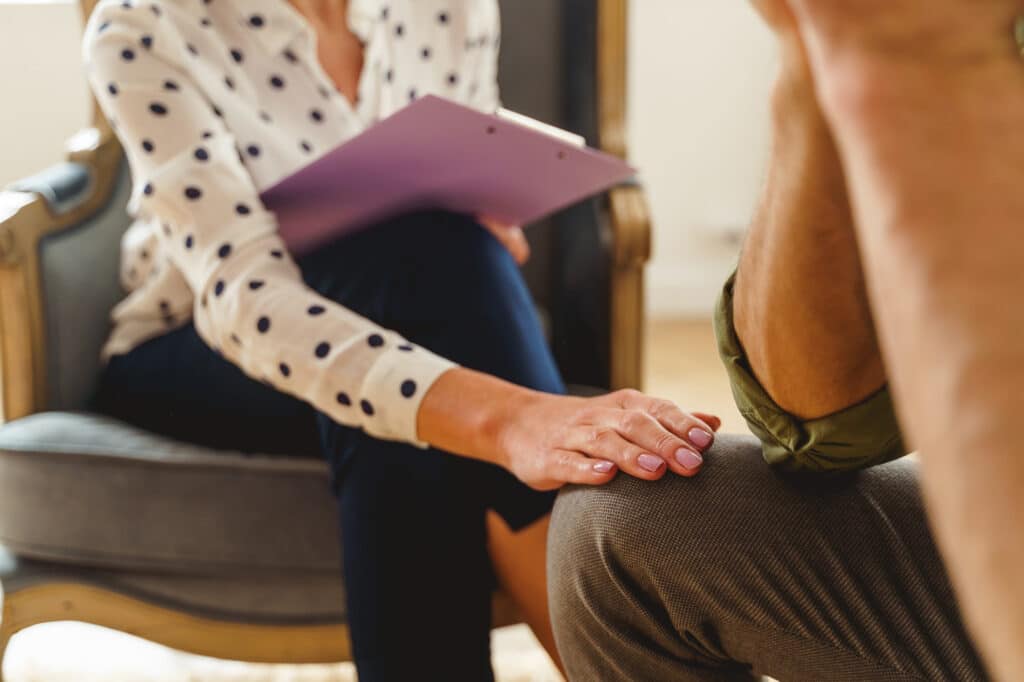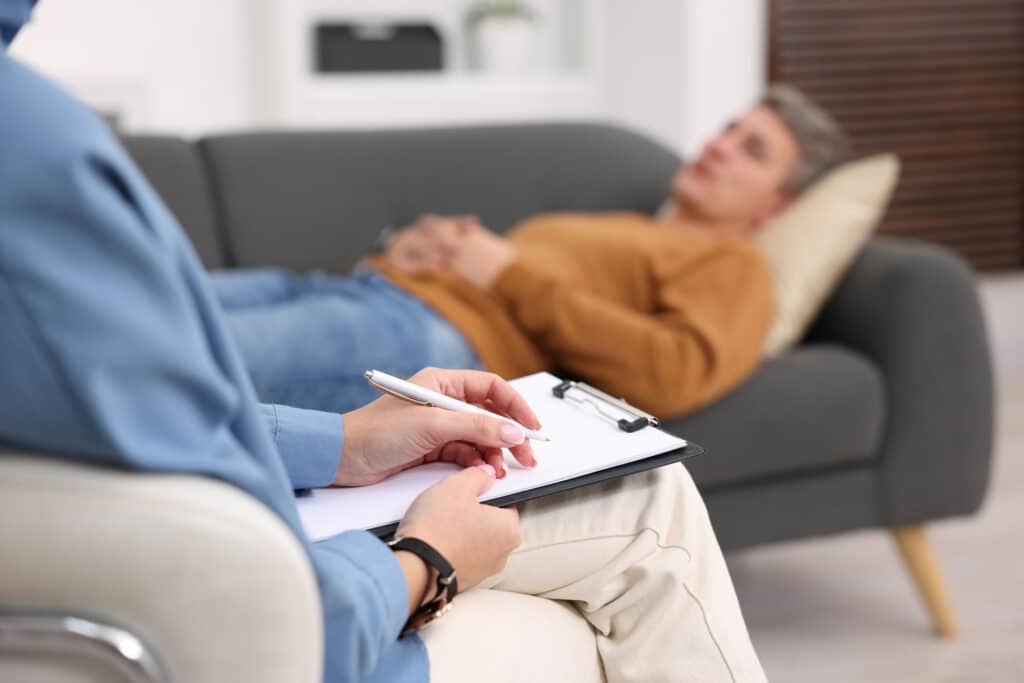Many people wonder what to expect from couples therapy, how the process unfolds, and whether it can actually help strengthen their relationship. Starting couples, therapy can be intimidating, especially if you don’t know what to expect. For couples seeking guidance, understanding the structure and goals of therapy before starting can reduce anxiety and increase motivation.
If you’re considering professional help to save or improve your relationship, in a safe and inclusive space, we recommend contacting Daniel Criado. An experienced, bilingual psychologist offering couples therapy in Albany, NY.
If you’d like to learn more about what to expect from couples therapy and how it can help your love life, keep reading; we’ll explain it to you in a simple yet clear way.
Who Should Consider Couples Therapy?
Couples therapy—sometimes referred to as relationship therapy for couples—is not only for those on the verge of breaking up. It can benefit partners at different stages of their relationship, including:
- New couples who want to build a strong foundation of communication.
- Engaged or married couples navigating major life transitions.
- Long-term partners struggling with recurring conflicts, resentment, or emotional distance.
- Couples facing betrayal or trust issues after infidelity or secrecy.
- Partners under stress from parenting challenges, financial strain, or career pressures.
If you and your partner find yourself trapped in repetitive arguments or avoiding important conversations, therapy can provide the tools you need to overcome them and move forward.

What Happens in the First Couples Therapy Session?
The first session is very important, especially for those wondering what to expect from couples therapy. It typically consists of an assessment and building trust between the participants. Both partners meet with the therapist to share their history, the history of their relationship, and current issues.
Typically, the therapist will ask about:
- Each partner’s perspective on the problems.
- Goals for the relationship.
- Patterns of communication or conflict.
- Background information such as family history, culture, or values.
The initial couples therapy session is not about solving everything immediately. Instead, it establishes a safe environment where both voices are heard. The therapist’s role is to listen, identify themes, and begin creating a roadmap for future sessions.
Common Techniques Used
Part of understanding couples therapy involves understanding the tools used to create the necessary change. Once the process begins, therapists may draw from several evidence-based methods. For example:
- Emotionally Focused Therapy (EFT): Helps couples recognize negative cycles, access deeper emotions, and build secure emotional bonds.
- Gottman Method: Focuses on reducing harmful communication patterns, improving friendship, and strengthening intimacy.
- Cognitive Behavioral Therapy (CBT): Identifies unhelpful thought patterns and replaces them with healthier ways of relating.
- Imago Therapy: Encourages partners to explore childhood influences that shape current behaviors.
In addition, techniques often include reflective listening, structured dialogue, role-playing, and guided exercises. Homework may also be assigned to practice new communication skills outside the therapy room.
Benefits You Can Expect from Couples Therapy
Many couples begin therapy with uncertainty, but consistent participation frequently brings powerful results. Let’s see some benefits you can realistically expect:
- Improved communication: Teaches active listening and clear expression of needs.
- Conflict resolution: Helps find healthier ways to manage disagreements without escalating them.
- Restoring trust: Helps repair bonds after betrayal or estrangement.
- Emotional intimacy: Enables reconnection on a deeper level and rebuilding closeness.
- Problem-solving skills: Teaches how to work together on daily challenges and long-term goals.
- Stress reduction: Helps reduce the impact of conflict on mental health and overall well-being.
The benefits of therapy extend beyond the relationship itself. In fact, many clients report feeling more secure, balanced, and resilient in other areas of their lives once their relationship stabilizes. In short, what you can expect from couples therapy is growth, clarity, and connection.
How to Prepare for It
Preparation plays an important role in maximizing the value of therapy. Let’s see some practical tips that will be very helpful:
- Set clear goals: Talk with your partner about what you both hope to achieve.
- Be open and honest: Therapy works best (in fact, it only really works) when both partners are willing to share their perspectives, even if they feel uncomfortable.
- Commit to consistency: Attending sessions regularly builds momentum and allows progress to compound.
- Practice patience: Change doesn’t happen overnight—be prepared for gradual improvement.
- Do the homework: If your therapist assigns exercises, completing them reinforces progress outside of sessions.
Taking these steps helps you engage actively in the process and ensures your time in therapy is well spent.
How Long Does Couples Therapy Last?
The length of therapy varies depending on the couple’s goals and challenges. Some couples benefit from short-term therapy of 8–12 sessions focused on communication skills. Others may need more time to rebuild trust or address deep-rooted issues.
In any case, most therapists recommend weekly sessions at first, gradually reducing to biweekly or monthly sessions as progress is made. The key is commitment: therapy lasts as long as it remains useful, and its effect often continues long after the sessions end.

In what case, couples therapy may not be enough?
It’s important to understand that although couples therapy is a powerful tool, its success has certain limits. Its benefits depend on the willingness of both partners. If the willingness to compromise isn’t mutual, or if there are unresolved issues (addictions or severe trauma), individual therapy may be necessary to move forward together.
Sometimes, therapy helps couples make the decision to separate respectfully, rather than remain in a damaging dynamic. The goal of therapy isn’t always to “save” the relationship at all costs, but rather to help both partners find the healthiest and most constructive path for their lives.
Strengthening your relationship begins with couples therapy
If you’re still wondering what you can expect from couples therapy, the answer is: reassurance, structure, and hope. Plus, a safe environment, guided conversations, and tools to strengthen your connection. Although challenges don’t disappear overnight, many couples find that therapy transforms not only their relationship but also their individual growth.
Ready to invest in your relationship? Explore couples therapy in Albany, NY with Daniel Criado, a bilingual psychologist who offers compassionate, evidence-based support. Don’t wait for conflicts to escalate; schedule your consultation today and take the first step toward a healthier, more fulfilling relationship.







